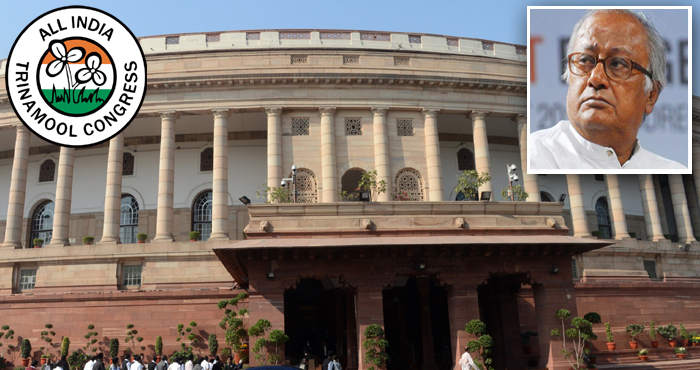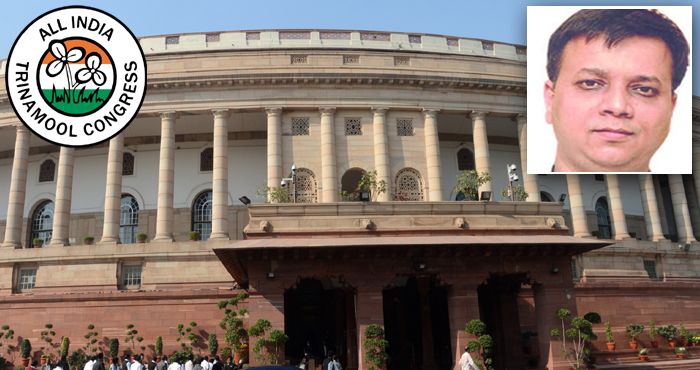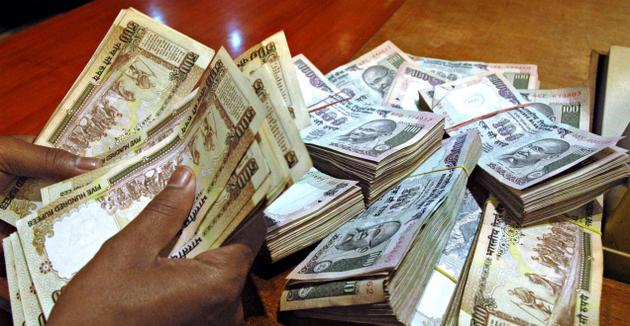FULL TRANSCRIPT
Sir, I rise to speak on the Finance Bill on behalf of my party, the All India Trinamool Congress. Sir, this Finance Bill when it was presented on February 1, 2017 had 150 clauses and 7 schedules. But strangely enough the Finance Minister in his series of amendments – which we received today – added 33 new clauses and 2 schedules. This is unprecedented and we have already protested.
The ruling party has done this after the UP victory. They think that they can write-off or overrule all rules, conventions and procedures. Otherwise I do not understand why in Finance Bill – which is supposed to detail the taxation proposals of the government – they have brought in the abolition or uniformisation of the tribunals, which have no relation to taxation proposals directly.
I may read names of some of the tribunals: Copyright Board, Railway Rates Tribunal, National Highways Tribunal, Cyber Appellate Tribunal, Competition Appellate Tribunal. These have no relation with taxation proposals but still the Finance Minister has forcibly overridden Article 110 of the Constitution and the traditions of the House.
Now as we know that the taxation proposals are mainly related to the different taxes that we have in this country like – Corporation Tax, Income Tax, Customs, Excise Duty and Service Tax. If we see the Budget of this year, 19% of the income of the government comes from Corporation Tax, 16% comes from Income Tax, 9% from Customs, 14% from Excise and 10% from Service Tax. So, the direct taxes are 35% and indirect taxes are 33%.
Now in a properly running economy, Direct Taxes should be much more than indirect taxes because indirect taxes are basically inflationary. We find that in this Budget both are roughly equal.
You also know Sir that there is the Laffer curves in Economics which says, the higher the taxation rate the lower the collection. There has been no significant effort to lower the taxation rate so that collections could be improved. The whole Budget has been formulated in the backdrop of two important steps: one is the reckless demonetisation ordered by the new government on November 8, 2016 and the other is the shadow of the GST.
The GST is coming into effect from July 1, 2017; both excise duty and service tax will be subsumed within the GST. The government has formed this budget with the expectation that GST would give rise to better collection. For the funding of such expenditure, government has increased money for infrastructure etc. Now where will the money come from?
The funding of such expenditure seems to be left to the mercy of implementation of GST which is likely to bring in more taxes to the Centre and States as also transfer of resources from the tax evaders to the Government through demonetisation. However evidence from cross country studies, Sir, this is important, has pointed to the contractionary effects of GST in the short term, particularly in the year of imposition. Thus tax revenue will be reduced. It is likely that tax revenue will fall this year.
That’s why Mr Jaitley, Sir, has not been revolutionary. Even with UP election he was very careful to give things to the common people. He just gave a mild compensation on Income Tax but people’s expectation was that the exemption limit would be raised to Rs 5 lakh. He did not give that. There was also a talk of farm loan waiver which the government has not given.
Demonetisation was Mr Modi and Arun Jaitley’s big gamble. They expected a bonanza due to demonetisation. People would deposit money and not withdraw and the money would remain with the bank, which they would distribute. However, roughly Rs 15 lakh crore was demonetised but almost Rs 15 lakh crore was deposited. Mr Jaitley or any other Minister will never reply if asked how much of money was deposited because they do not know.
The second question is how much money is required to remonetise i.e printing of new notes. I have not yet got an answer till date from the government. my estimate is that it will be Rs 20,000 crore. For one decision of Mr Modi Rs 20,000 crore will be spent now. How much extra tax did they get through demonetisation, after scrutinising all accounts? Only Rs 6,500 crore. So demonetisation has been a total loss.
The government gambled and it was a risky gamble which crushed the small farmers, the artisans, the daily labourers. One day the government will have to the pay the price, may be not in political terms.
Tax revenues may not perk up in 2017-18 when crude prices may be higher and corporate profits growth weak. The Centre has committed to reimburse State Governments for revenue losses post-GST. It has also guaranteed growth annually. If the initial year of GST is poor in revenue accruals, then where will it get the money? If the first year does not throw up enough money – the Rs 21 lakh crore Budget Mr Jaitley has proposed – where will this money come from? I do not know.
Earlier it was thought that compensation to States would amount to Rs 50,000 crore per year. but after demonetisation, most States have seen a drop in tax revenue and compensation figures may swell to Rs 90,000 crore. The Finance Minister’s pockets are empty. Where will you pay the compensation to the States from is not quite clear from the figures.
The Budget hence was little more than an exercise in damage control. It had a long list of giveaways and Government programmes in the context of demonetisation hurting the economy, but little in the way of job-creating reforms. One million people are joining the job market in India every year. In 2015, only 1.35 lakh new jobs were created in this country. Every year we are creating an army of unemployed.
You look at Mr Jaitley’s speech. Where is the promise for giving employment to the people? You tax, you demonetise, you introduce GST, you talk big, you say infrastructure, but where are the jobs? That is the question. The Budget encourages companies to remain small because they are giving concessions to smaller companies but not to bigger companies. So they are saying, remain small. You need not bother.
The Budget needed to do something to revise investment since private investment showed no signs of recovery. Madam, I’ll end by saying two points. The Government is going for privatisation. Today the Finance Minister announced he is going to disinvest Bridge and Roofs (Kolkata), Bharat Pumps, Scooters India, Hindustan News Mills and eight more companies. They are destroying the basis of the public sector in India. I totally oppose these disinvestment proposals of the government.
Lastly, the Budget does not tell us how much black money has been recovered so far. The Finance Minister in his Budget speech said that India is a tax non-complaint society. He has not shown a way by which he will be able to mop up more resources from the rich and give more relief to the poor so that the economy improves.
With these words, I end my speech. Thank you, Madam.



